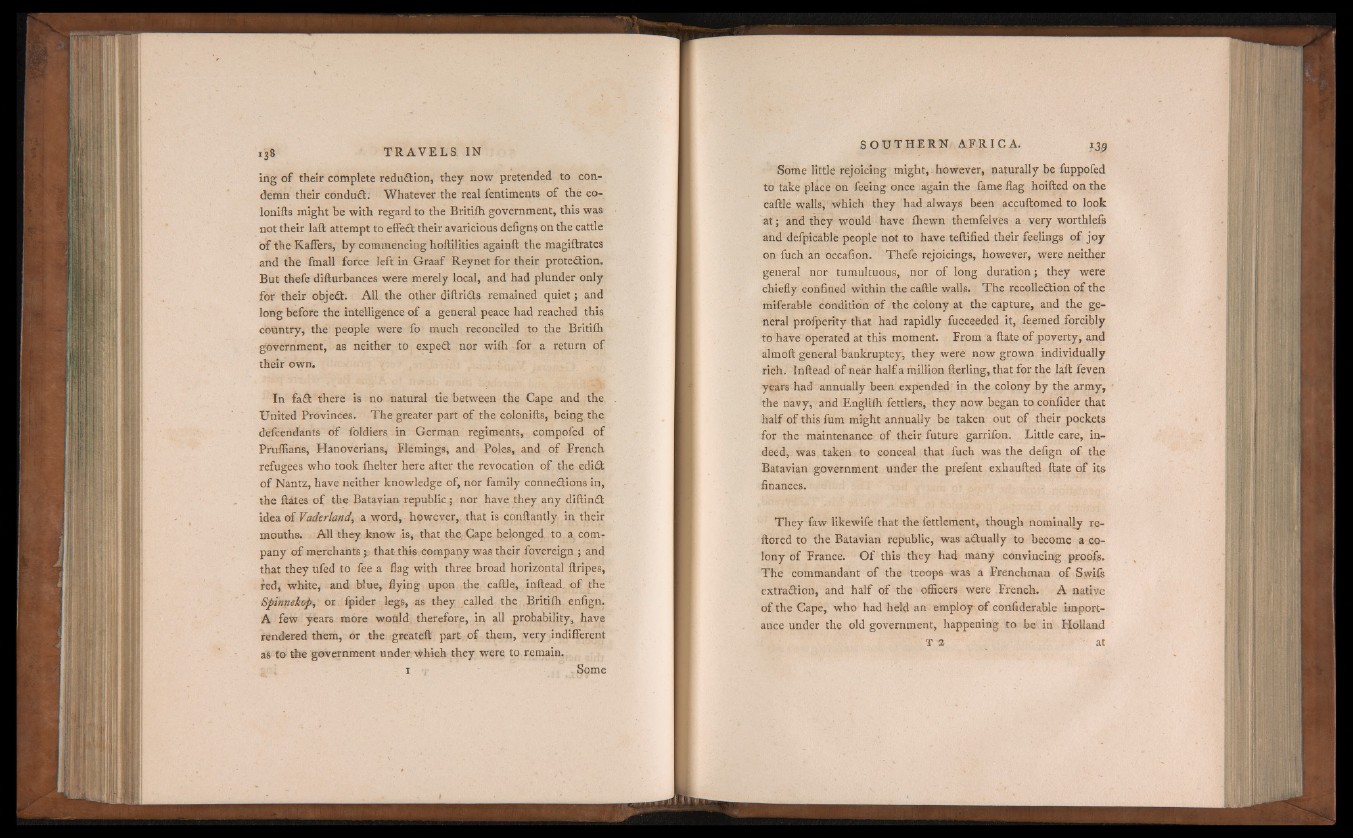
ing of their complete reduction, they now pretended to condemn
their conduit; Whatever the real fentiments of the co-
lonifts might be with regard to the Britiih government, this was
not their laft attempt to effeCt their avaricious defigns on the cattle
of the Kaifers, by commencing hoftilities againft the magiftrates
and the fmall force left in Graaf Reynet for their proteition.
But thefe difturbances were merely local, and had plunder only
for their objeit. All the other diftridts remained quiet; and
long before the intelligence of a general peace had reached this
country, the people were fo much reconciled to the Britiih
government, as neither to expedt nor wiih for a return of
their own.
In fadt there is no natural tie between the Cape and the
United Provinces. The greater part of the colonifts, being the
defcendants of foldiers in German regiments, compofed of
Pruffians, Hanoverians, Flemings, and Poles, and of French
refugees who took fhelter here after the revocation of the edidt
of Nantz, have neither knowledge of, nor family connedtions in,
the ftaies of the Batavian republic; nor have they any diftindt
idea of Vaderland, a word, however, that is conftantly in their
mouths. All they know is, that the Cape belonged to a company
of merchants } that this company was their fovereign ; and
that they ufed to fee a flag with three broad horizontal ftripes,
red, white, and blue, flying upon the caftle, inftead of the
Spinnekop, or fpider legs, as they called the Britiih enfign.
A few years more would therefore, in all probability, have
rendered them, or the greateft part o f them, very indifferent
as to the government under which they were to remain.
i j .Some
Some little rejoicing might, however, naturally be fuppofed
to take place on feeing once again the fame flag hoifted on the
caftle walls, which they had always been accuftomed to look
at; and they would have ihewn themfelves a very worthlefs
and defpicable people not to have teftified their feelings of joy
on fuch an occafion. Thefe rejoicings, however, were neither
general nor tumultuous, nor of long duration; they were
chiefly confined within the caftle walls. The recolledtion of the
miferable condition of the colony at the capture, and the general
profperity that had rapidly fucceeded it, feemed forcibly
to have operated at this moment. From a ftate of poverty, and
almoft general bankruptcy, they were now grown individually
rich. Inftead of near half a million fterling, that for the laft feven
years had annually been expended in the colony by the army,
the navy, and Engliih fettlers, they now began to confider that
half of this fum might annually be taken out of their pockets
for the maintenance of their future garrifon. Little care, indeed,
was taken to conceal that fuch was the defign of the
Batavian government under the prefent exhaufted ftate of its
finances.
They faw likewife that the fettlement, though nominally re-
ftored to the Batavian republic, was actually to become a colony
of France. Of this they had many convincing proofs.
The commandant of the troops was a Frenchman of Swiis
extraction, and half of the officers were French. A native
of the Cape, who had held an employ of confiderable importance
under the old government, happening to be in Holland
T 2 at